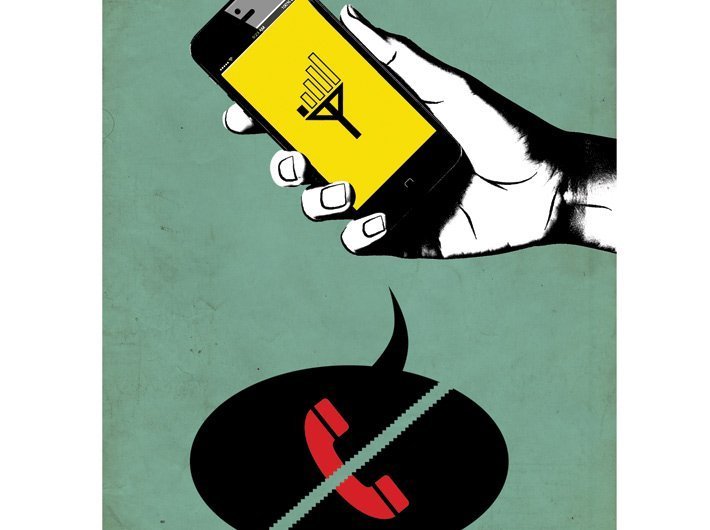Sharing telecom infrastructure and amending building norms can solve the problem of call drops
After losing the legal battle with telecom operators over compensating for call drops, the telecom regulatory authority of India (TRAI) has asked for solutions to address the issue. TRAI on Monday issued a consultation paper on ‘in-building access by telecom service providers (TSPs)’.
It has asked for written comments on the paper from the stakeholders by July 7 and counter comments by July 14.
Lack of coverage inside a building has been an issue of concern for both consumers and telecom operators. The operators have maintained that due to difficulty in getting permission to set up infrastructure over a building, they are unable to provide seamless coverage inside the building. The problem is therefore leading to poor quality of telecom services in the country, hence, causing call drops.
“It is implicit that TSPs would require an access inside the building to install the telecom infrastructure or lay their cables. While many infrastructure related issues have been dealt with by the Authority [TRAI] in the past, there are issues related to In-building access that are still faced by the TSPs and therefore, remain to be addressed,” TRAI wrote in the paper.
TRAI acknowledged in its paper that due to restricted entry into buildings, telecom operators are unable to provide network to the residents of the building.
Moreover, the regulatory body said that “exclusive agreements” of building owners with one of the telecom operators is leaving “no choice to consumers but to take services from the contracted TSP.”
Some of the suggestions in TRAI’s consultation paper are:
• Operators should not be allowed to come into any agreement with a building owner that restrict entry for other telecom operators into the building.
• The choice of operators sharing infrastructure should remain with consumers, not the building owner or infrastructure provider.
• In-building network coverage can be improved by sharing of telecom infrastructure of a building. For example, Delhi Metro Rail Corporation (DMRC) has registered itself as Infrastructure Provider 5 (IP) and created infrastructure in underground tunnels. TSPs share this infrastructure to provide services to commuters.
• Infrastructure providers should “share their infrastructure with other TSPs to reduce infrastructure and transaction costs and help in quicker roll-out of their services.”
• Building telecom infrastructure such as cables, fibres, IBS / Micro BTS / HetNet etc inside the building and sharing it with other service providers at reasonable terms and conditions will not only help in provisioning of telecom services including high speed broadband but also facilitate in reduction of the cost of these services.
• New constructions or constructions going through rehabilitation must make telecom infrastructure as an “essential infrastructure”, allowing unhindered access to all the operators to utilise the infrastructure.
• Local administration should make it mandatory to have adequate provision for ducts/optical fibre and IBS while approving/clearing the construction of new facilities, such as multiplexes, malls, hotels. The bureau of Indian standards (BIS) is in process of framing ‘national building code’ that would mandate builders to create one time infrastructure that is telecom ducts, which the operators could use to reach the building.
• The department of telecommunications (DoT) should take up the matters with the ministry of urban development.
In its latest survey in Delhi in May, TRAI found out that rate of call drop was still not meeting the standard rate set by the authority. Dropped call rate of the state-run telecom operator MTNL topped among the other operators with 8.2 percent on 3G network and 10.4 percent on 2G. It was followed by Idea with dropped call rate of 6.2 percent on 3G network.
Only reliance 2G and Vodafone 3G stayed within the standard rate of call drops that is 3 percent.

